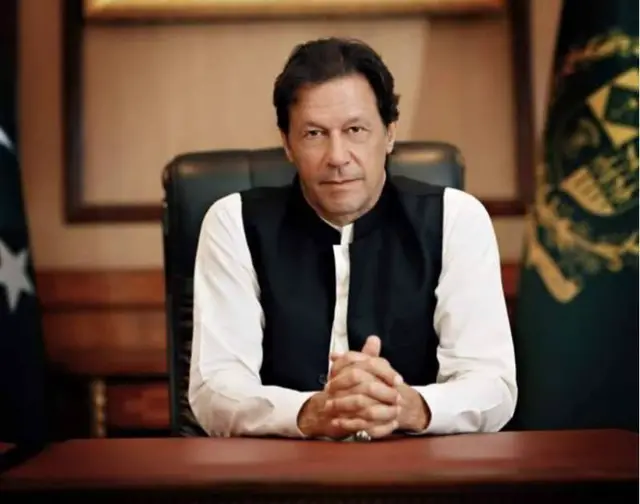Author: Prof. Engr. Zamir Ahmed Awan, Sinologist (ex-Diplomat), Editor, Analyst, Non-Resident Fellow of CCG (Center for China and Globalization), National University of Sciences and Technology (NUST), Islamabad, Pakistan. (E-mail: [email protected]).
Prime Minister of Pakistan, Imran Khan, addressing the 76th Session of United Nations General Assembly (UNGA) said “The world is facing the triple challenge of the Covid-19, the accompanying economic crisis, and the threats posed by climate change.”
In fact, COVID-19 is the biggest threat to humankind and has cost millions of precious human lives, and yet no significant progress has been achieved to suppress it. Although efforts are being made to Vaccinate people, the percentage of Vaccination is rather low, especially in developing nations, the situation is yet challenging. Few rich and developed countries have vaccinated their population up to 80 percent only. There is a need to accelerate the struggle against COVID-19 to rescue humans lived around the world.
Due to COVID-19, the lockdowns, and keeping social distances have adversely impacted the global economy. The global economy has suffered at least a 15 percent fall down, with a more serious impact on developing and underdeveloped nations. The suffering of humankind has increased due to the economic crisis.
Climate Change is also a big threat to humankind, it has impacted Agriculture, and food security for many nations. Strict measures are needed to apply to overcome the challenges of Climate Change. He pointed out “Pakistan’s contribution to global emissions is negligible. Yet we are among the 10 most vulnerable countries to the effects of climate change in the world.”
He further said “The virus does not discriminate between nations and people. Nor do the catastrophes imposed by uncertain weather patterns.” However, by the grace of Almighty Allah, Pakistan has been successful so far in containing the Covid-19 pandemic. The calibrated strategy of ‘smart lockdowns’ helped save lives and livelihoods and kept the economy afloat in Pakistan.
Referring to Islamophobia he said “Islamophobia is another pernicious phenomenon that we all need to collectively combat. In the aftermath of the 9/11 terrorist attacks, terrorism has been associated with Islam by some quarters. This has increased the tendency of right-wing, xenophobic and violent nationalists, extremists and terrorist groups to target Muslims.” He suggested to the Secretary-General to convene a global dialogue on countering the rise of Islamophobia. Our parallel efforts, at the same time, should be to promote interfaith harmony, and they should continue till the goals are achieved.
Citing India he said “The worst and most pervasive form of Islamophobia now rules India. The hate-filled ‘Hindutva’ ideology, propagated by the fascist RSS-BJP regime, has unleashed a reign of fear and violence against India’s 200 million-strong Muslim community. Mob lynching by cow vigilantes; frequent pogroms, such as the one in New Delhi last year; discriminatory citizenship laws to purge India of Muslims; and a campaign to destroy mosques across India and obliterate its Muslim heritage and history, are all part of this criminal enterprise.”
India’s actions in Occupied Jammu and Kashmir also violate International Human Rights and Humanitarian Laws, including the 4th Geneva Convention, and amount to “war crimes” and “crimes against humanity.” India has surpassed all the records of human rights violations.
He said “Indian actions violate the resolutions of the UN Security Council on Jammu and Kashmir. The resolutions clearly prescribe that the “final disposition” of the disputed territory should be decided by its people, through a free and impartial plebiscite held under the UN auspices.”
Pakistan desires peace with India, as with all its neighbors. Pakistan is a peace-loving nation. But sustainable peace in South Asia is contingent upon the resolution of the Jammu and Kashmir dispute, in accordance with the relevant United Nations Security Council resolutions, and the wishes of the Kashmiri people. Pakistan is a responsible state and understands its global obligations.
Regarding the situation in Afghanistan, he said “Now the whole international community should think what the way ahead is? There are two paths that we can take. If we neglect Afghanistan right now, according to the UN half the people of Afghanistan are already vulnerable, and by next year almost 90% of the people in Afghanistan will go below the poverty line. There is a huge humanitarian crisis looming ahead. And this will have serious repercussions not just for the neighbors of Afghanistan but everywhere. A destabilized, chaotic Afghanistan will again become a safe haven for international terrorists – the reason why the US came to Afghanistan in the first place. Therefore, there is only one way to go. We must strengthen and stabilize the current government, for the sake of the people of Afghanistan.”
Considering the deteriorating situation in Afghanistan, one cannot waste time. Help is needed there. Humanitarian assistance has to be given there immediately. The Secretary-General of the United Nations has taken bold steps. It is urged that mobilize the international community, and move in this direction quickly.
(ASIA PACIFIC DAILY)
 简体中文
简体中文

